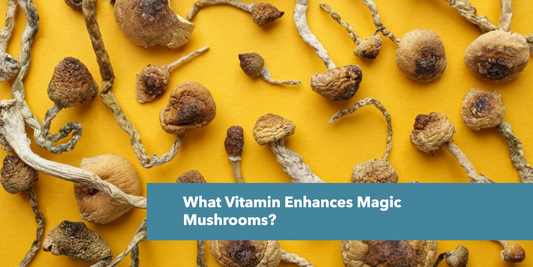How does psilocybin affect neurotransmitters?
Psilocybin primarily affects serotonin levels and receptor activity in the brain. It acts as a potent agonist at serotonin 2A (5-HT2A) receptors, leading to significant changes in brain function.
However, the effects of psilocybin extend beyond serotonin. It also influences:
Dopamine: Psilocybin can increase dopamine levels in certain brain regions, contributing to feelings of pleasure and reward.
Glutamate: This neurotransmitter is essential for learning and memory. Psilocybin seems to modulate glutamate levels, potentially explaining some of the cognitive effects associated with psychedelic experiences.
GABA: As the primary inhibitory neurotransmitter, GABA balances brain activity. Psilocybin's interaction with GABA is less understood but might contribute to the overall effects.
Does psilocybin increase or decrease neurotransmitter levels?
Psilocybin primarily affects neurotransmitter levels by altering their release and receptor activity, rather than directly increasing or decreasing their overall production.
Here's a breakdown:
Serotonin: Psilocybin is a potent agonist at serotonin 2A receptors, which can indirectly increase serotonin levels in certain brain regions.
Dopamine: Psilocybin can increase dopamine release in specific areas of the brain, contributing to feelings of pleasure and reward.
Glutamate and GABA: While psilocybin can influence the release of these neurotransmitters, the overall effect on their levels is more complex and depends on various factors, including brain region and dosage.
Does psilocybin affect GABAergic transmission?
Yes, psilocybin can affect GABAergic transmission. While serotonin is the primary target for psilocybin, research has shown that it can also influence the GABA system.
Increased GABA levels: Studies have indicated that psilocybin can increase GABA levels in certain brain regions.
Modulation of inhibitory activity: As the primary inhibitory neurotransmitter, GABA plays a crucial role in balancing brain activity. By influencing GABA levels, psilocybin can contribute to the overall effects of the psychedelic experience.
Specific Neurotransmitters
How does psilocybin influence serotonin levels?
Psilocybin primarily affects serotonin levels indirectly by stimulating serotonin receptors. It doesn't directly increase the overall production of serotonin, but it significantly impacts how serotonin functions in the brain.
Here's how it works:
Serotonin Receptor Activation: Psilocybin, specifically its active metabolite psilocin, binds to and activates serotonin 2A (5-HT2A) receptors.
Altered Serotonin Signaling: This activation disrupts the normal patterns of serotonin signaling, leading to changes in brain activity and perception.
Indirect Serotonin Release: While not directly increasing serotonin levels, the activation of serotonin receptors can influence the release of serotonin in specific brain regions.
What is the role of dopamine in psilocybin's effects?
Dopamine plays a significant role in the effects of psilocybin. While not the primary target like serotonin, it contributes to the overall psychedelic experience.
Increased Dopamine Release: Psilocybin is thought to indirectly increase dopamine levels in certain brain regions, particularly the nucleus accumbens, which is associated with reward and motivation.
Reinforcement and Pleasure: This increased dopamine release contributes to the pleasurable and reinforcing aspects of the psychedelic experience.
Potential for Abuse: While the addictive potential of psilocybin is low compared to other substances, the involvement of the dopamine system highlights the possibility of reward-seeking behavior.
Does psilocybin affect glutamate and GABA?
Yes, psilocybin affects both glutamate and GABA. While research is ongoing, it's clear that these neurotransmitters play a role in the psychedelic experience.
Glutamate: This excitatory neurotransmitter is essential for learning and memory. Psilocybin appears to increase glutamate levels in some brain regions, particularly the prefrontal cortex. This increase is thought to contribute to the altered states of consciousness and potential cognitive changes associated with psychedelic experiences.
GABA: As the primary inhibitory neurotransmitter, GABA balances brain activity. Psilocybin seems to increase GABA levels in certain areas, which might help explain some of the calming and anxiety-reducing effects reported by users.
Mechanism of Action
What is the relationship between psilocybin and neurotransmitter reuptake?
Psilocybin's primary mechanism of action involves receptor interaction rather than directly affecting neurotransmitter reuptake.
Unlike many antidepressants that target neurotransmitter reuptake inhibitors (SSRIs, SNRIs), psilocybin works by activating serotonin receptors, particularly the 5-HT2A receptor. This stimulation leads to changes in neural signaling and ultimately, the psychedelic experience.
While there might be indirect effects on reuptake systems due to the complex interplay of neurotransmitters, the core mechanism of psilocybin is receptor agonism, not inhibition of reuptake.
How does psilocybin influence the balance of excitatory and inhibitory neurotransmitters?
Psilocybin influences the balance of excitatory and inhibitory neurotransmitters, contributing to the overall psychedelic experience.
Increased excitatory activity: By stimulating serotonin receptors and potentially increasing glutamate release, psilocybin enhances excitatory neurotransmission in the brain. This can lead to heightened sensory input, altered perception, and a sense of heightened awareness.
Modulation of inhibitory activity: While less understood, psilocybin might also influence GABAergic transmission, which is inhibitory. This balance between excitation and inhibition is crucial for normal brain function, and alterations in this balance can contribute to the unique effects of psilocybin.




